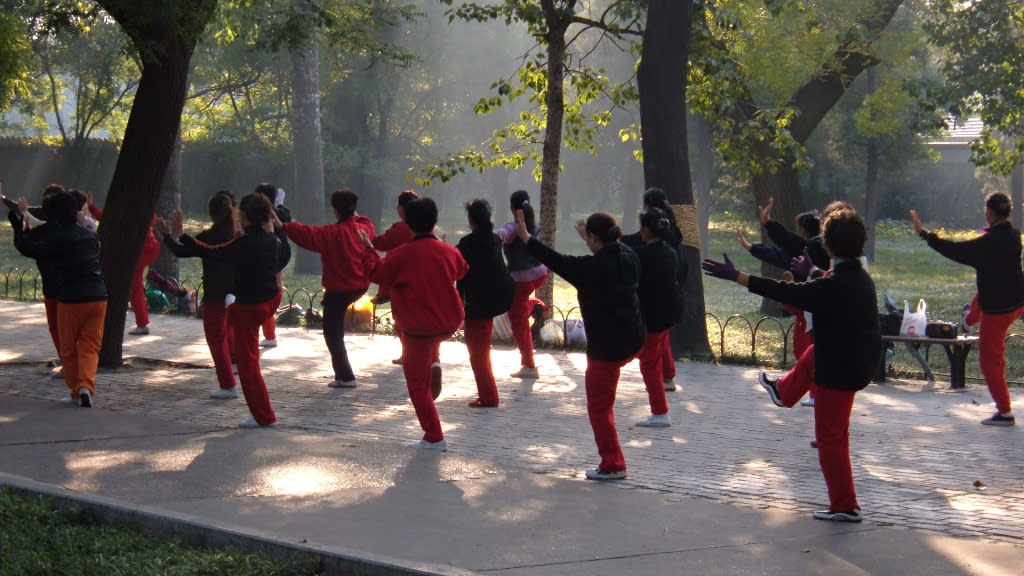Tai chi may slow down symptoms of Parkinson's disease for years: study

[Source]
Tai chi, an ancient, "internal" Chinese martial art focused on slow, intentional movements, may help curb the symptoms of Parkinson’s disease for several years, a new study from China shows.
About Parkinson’s disease: Parkinson’s disease is a progressive, neurodegenerative disorder characterized by symptoms such as slowness of movement, resting tremors and stiff muscles. It is a debilitating condition that has no known cure to date.
Key findings: Researchers from Shanghai Jiao Tong University School of Medicine found that patients who practiced tai chi twice a week for an hour showed a slower disease progression and less complications than those who did not. They also required less doses of medication, demonstrated slower cognitive deterioration and continuously improved their sleep and quality of life.
One notable difference is that 2% of those who received standard care reported hallucinations, while none of those who practiced tai chi did. Still, it is important to note that the study is observational and does not establish cause and effect.
Trending on NextShark: Watch: Australian influencer mistaken for Ryan Reynolds swarmed by fans in Taiwan
Participants: The researchers monitored two groups of patients between January 2016 and June 2021. One group, consisting of 147 patients, practiced tai chi under the aforementioned schedule, while the other group, consisting of 187 patients, continued with standard care.
How the researchers studied: The study assessed the severity of each patient’s disease at the beginning of the monitoring period, while progression and increases in the need for medication were assessed in November 2019, October 2020 and June 2021. Researchers also tracked other symptoms, complications, sleep, quality of life and other variables using validated scales.
What the researchers are saying: The researchers say their study shows tai chi’s “long-term beneficial effect” on the disease. These include modifying effects on both motor and non-motor symptoms, including gait, balance, cognition and autonomic symptoms.
Trending on NextShark: ‘Weekend marriages,' where couples live separately, gain popularity in Japan
“[Parkinson’s disease] can worsen motor function and non-motor symptoms progressively with time, resulting in disability and influencing the quality of life,” they said in a statement. “The long-term beneficial effect on [the disease] could prolong the time without disability, leading to a higher quality of life, a lower burden for caregivers, and less drug usage.”
The study was published in the Journal of Neurology, Neurosurgery & Psychiatry.
Trending on NextShark: Watch: Carefree Asian dad sleeping on plane floor wins praise on TikTok
More on NextShark:
Honda, Toyota express skepticism about EVs amid industry downturn
Tony Leung, Faye Wong reunite in rare photo taken almost 30 years after 'Chungking Express'


